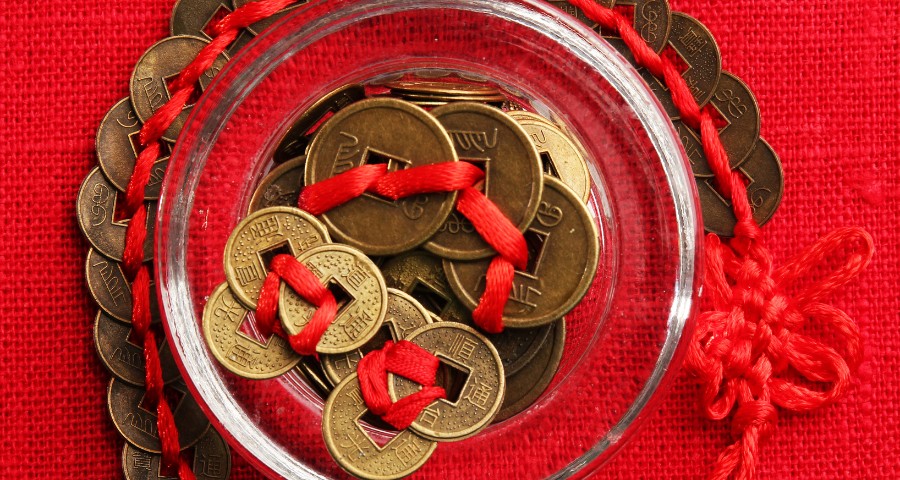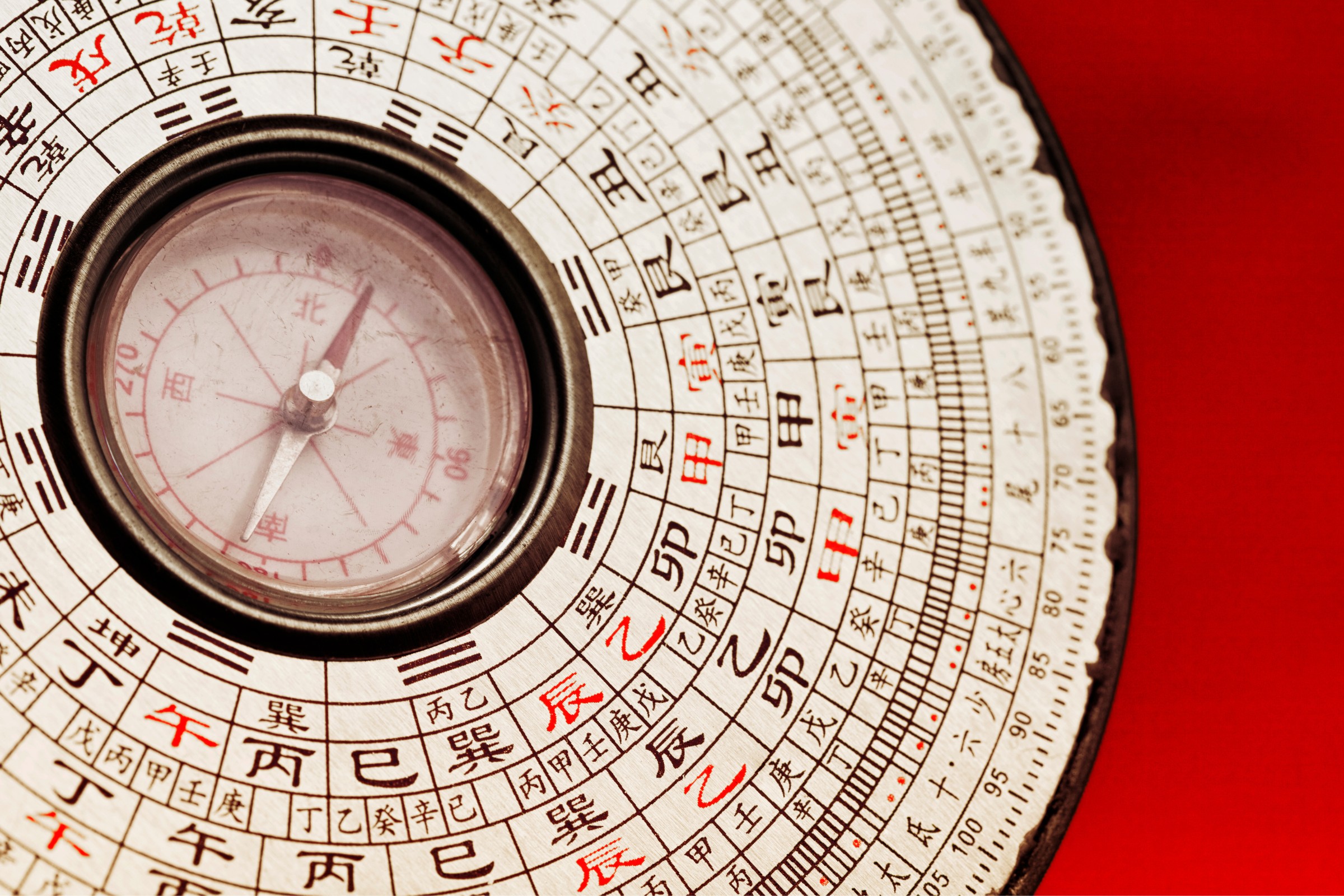If you’ve ever felt like your home just doesn’t “flow” right, a feng shui master might say it’s all about energy — or chi.
Rooted in ancient Chinese tradition, feng shui is the art of arranging your space to promote balance, harmony, and good vibes in every corner. The term itself means “wind” and “water,” symbolising the natural movement of energy through our surroundings.
Whether it’s shifting your furniture, adding the right colours, or embracing yin and yang, feng shui offers practical ways to make your environment feel more comfortable and supportive.
In this guide, we’ll break down the most popular feng shui master practices — explained simply — so even beginners can start creating a home that feels as good as it looks.
What is Feng Shui?
Feng shui is fundamentally about managing qi (also spelled chi)—the vital energy that flows through all living things. Good feng shui is achieved when qi can circulate smoothly, supporting well-being and success. According to feng shui theory, one’s home should not have blocked or stagnant chi, because the environment affects one’s health, relationships and fortune. The practice combines several traditional concepts:
Qi (energy flow): Qi is viewed as a life force or cosmic energy. Feng shui masters say that properly placed buildings and objects can “take advantage of vital qi” to improve a person’s luck and comfort. For example, they advise keeping pathways clear so qi doesn’t get stuck or rush straight out of the front door.
Yin and Yang balance: Yin and yang are complementary forces (dark/light, quiet/noisy, passive/active). Feng shui emphasises balancing these dualities in a home. As one expert notes, “symmetry and the yin and yang principle are key” to finding balance in your life through your environment. For instance, a bedroom (yin space) should be calm and dim (yin) rather than overly bright (yang), whereas an active living room might mix vibrant (yang) and soothing (yin) elements.
Five Elements: Feng shui uses the five-element theory (wood, fire, earth, metal, water) from Taoist philosophy. Each element has associated qualities, colours and shapes. For example, wood symbolizes growth and vitality (green or blue colours, tall plants), fire represents passion (red or orange, triangles or candles), earth brings stability (brown or yellow, square shapes), metal denotes efficiency and clarity (white or grey, round shapes), and water supports flow and wisdom (black or deep blue, wavy forms). A simple practice is to add one element to strengthen an area: e.g. a green plant (wood element) can support health and kindness in the living room.
Bagua map: Masters use a bagua or energy map to overlay the floor plan. This divides a home into nine sectors, each linked to a life area (wealth, fame, family, health, career, etc.). Each bagua sector has its own element and remedies. For example, the southeast sector is “Wealth and Prosperity” (wood element); placing healthy green plants there is a common way to boost financial qi. The centre (bagua heart) represents overall balance and should be clear. (Beginners can start by identifying their front door on the bagua, since that wall typically aligns with either the south or north, depending on the method.)
In short, feng shui masters view a well-arranged space as one where qi can circulate freely, yin and yang are balanced, and the five elements are represented. This approach is meant to help people feel calm and supported by their environment.
Key Feng Shui Practices
Feng shui masters recommend several practical steps (many simple) to improve the energy in a home. These practices are easy for beginners and can make a noticeable difference in the feel of a space.
Creating Clear Energy Flow
Declutter and clean.
A core practice is to remove clutter and keep each area clean. Clutter blocks qi, causing stagnation. For example, one Feng Shui guide warns: “Excessive clutter causes blocked chi. Let go of excess items that take up valuable space”. In practice, that means tidying up floors and surfaces, especially near entrances, and regularly discarding unused items. Clean and uncluttered spaces allow chi to move unhindered.
Open up pathways.
Arrange furniture so hallways and doors are not blocked. Energy should flow smoothly through rooms, not “rush out” a straight corridor. Masters often advise against a direct line from front to back door. As one list of feng shui tips states: “Avoid a straight line from the front to a back door or window”. This encourages chi to circulate around the home. Similarly, ensure all doors open fully and are not obstructed. Keep entryways and hallways free of obstacles to welcome positive energy.
Maintain the front door.
The main entrance is called the “mouth of chi”. Feng shui masters stress that the entry should make a good impression. This means keeping it bright, clean, and easy to access. Sweep or vacuum the porch, remove cobwebs, and make sure the door is clearly visible. No plants, statues or furniture should block the doorway. A well-kept front door (for example, a freshly painted door in a strong feng shui colour) invites energy inside.
Furniture Placement and Commanding Position
Commanding position.
A frequently cited feng shui rule is to place important furniture in the commanding position. This means being far from the door (but not in direct line) and facing the door when seated.
For instance, the bed, desk, and stove should all be placed so that when you lie in bed, sit at your desk, or cook, you can see the door without being directly in front of it. The idea is that you have a good view of anyone entering, which brings a sense of security and awareness.
Masters believe this subconsciously helps you “feel more at ease” and notice opportunities coming your way.
A practical tip: back your furniture against a solid wall (no windows right behind the bed or desk), and angle the furniture slightly if needed, so the door is visible.
Facing seating.
In living and seating areas, arrange sofas and chairs so that people face each other, not the backs of chairs toward the door. This encourages conversation and connection.
Avoid placing couches with their backs to the entry. For dining tables, ensure seats have a clear view of the room.
This layout symbolises openness and social harmony.
Stove and mirror placement.
It’s traditionally advised that the stove (fire element) should not be directly visible from the front door, to keep wealth (fire energy) from “leaking” out.
Also, some feng shui guidelines suggest mirrors should be used carefully (for example, not reflecting the stove or the bed), since mirrors amplify and redirect energy.
If a mirror is needed, ensure it reflects a pleasant scene, not the entrance or appliances.
Avoid cutting the house in half.
A corridor or staircase that literally divides the home can symbolise division in the household. One Feng Shui tip states: “The house cannot be divided in half by a hallway or staircase, as this causes divisions in the household”.
Practically, this might mean adding furniture or plants to soften a long corridor or avoiding letting a narrow hallway run from one side of the house straight through to the other.
Using Elements and Colours
Balance the five elements.
Intentionally include elements around the home in décor. For example, use natural wood furniture or leafy plants (wood element), a small tabletop fountain or decorative bowl of water (water element), candles or red/orange accents (fire element), earth-toned ceramics or a yellow rug (earth element), and metal frames or white objects (metal element).
One of the best feng shui practices is to use the five elements in a balanced way. If one area lacks an element, add a representative item. For instance, to energise a living room (wood and fire areas), one might place a red painting (fire) or a tall green plant (wood).
Colour choices.
Each element has associated colours. Bright reds, oranges, or strong triangular décor can reinforce fire-energy zones (for fame/reputation). Soothing blues and blacks suit water areas (career, life path), while earthy browns and yellows bolster centre and grounding energy.
Use colours thoughtfully: paint accent walls, arrange pillows, or hang art that corresponds with the desired element. However, balance is key – for example, don’t overwhelm a bedroom (yin space) with too much aggressive red.
Natural materials and plants.
Fresh plants and wood are highly recommended. Healthy green plants not only add the wood element but also bring life force into a space. As one feng shui expert advises, placing plants with “rounder and softer leaves” helps “nourish your energy”.
A common practice is to put a money plant or snake plant in corners to accumulate wealth energy. Wood furniture and decor can be used in areas associated with family and growth.
Even materials like crystals (earth element) or a metal bowl (metal element) can be used as subtle cures.
Opening windows and light.
Light (fire element) and air help qi. Keep blinds open during the day and ensure good lighting. Mirrors can amplify light, so place them to reflect natural light into dim areas, but not such that they directly face the door.
Fix or replace broken light fixtures and lamps quickly – according to feng shui, broken items are like “broken chi” that can drain energy. In fact, one feng shui tip is simply: “Fix broken things: Fixing anything that may be broken in your home will improve the chi of a space”.
A bright, well-maintained home is thought to encourage positive energy.
Quick Feng Shui Tips
Here are some easy, concrete practices beginners can follow right away:
Declutter regularly.
Clear out junk and keep floors clear to let chi move. (Clutter is repeatedly warned against because it “takes up valuable space” and blocks energy.)
Keep the entryway clean.
The foyer or front hallway should be free of clutter and well-lit. Consider adding a mirror (if appropriate) or a decorative sign by the door to make it inviting.
Plants and nature.
Place live plants in common areas (living room, dining) and in prosperity corners. Even a small water feature (fountain or fish tank) in a wealth or career area can symbolise abundance (just ensure the water flows toward the house, not away).
Facing the door.
Position your bed, desk and cooktop so that when you use them, you’re not directly in line with the door. If not possible, place something (like a tall plant or piece of furniture) that blocks the direct path, which is said to slow the outgoing energy.
Use sound and scent.
Although not mentioned in all sources, it’s common for masters to suggest gentle sounds (wind chimes, soft music) to move chi, and pleasant scents (incense or essential oils) for a calming effect. For example, salt-water cures or ringing bells might be used in traditional practice. (If using wind chimes, hang them near entrances or windows so breeze can activate them.)
Entry “bagua cure.”
A pair of healthy potted plants flanking the front door is often advised (plants symbolise growth and welcome). Make sure these plants are trimmed and vibrant; dead or drooping plants are removed promptly, since they symbolise decaying chi.
Mirror placement.
If placing a mirror in the hallway or entry, ensure it does not directly reflect the front door (which would push energy back out) and that it doesn’t reflect a stove (which could “burn up” wealth). Use mirrors to expand light, but place them thoughtfully.
All these practices are guidelines. The overall aim is to make your home feel more open, balanced and energising. Often, small changes (like clearing a path, touching up paint, adding a plant) can make you feel the space differently, which itself is positive.
Room-by-Room Feng Shui
Feng shui masters often give specific advice for each room, since every space has its own function and energy. Here are beginner-friendly tips for the main areas of the home:
Entryway
The front door area is the “mouth of chi”. This is where energy enters the home, so it should be well cared for. Keep the foyer clean, clutter-free, and well-lit.
A dark, messy entry can leave visitors (and qi) feeling unwelcome. Make it easy for people (and energy) to enter: sweep the doorstep regularly, and if possible add a light fixture or lamp near the door to brighten the space.
According to feng shui guidance, a porch or front hall that is tidy and cheery encourages positive chi to flow in. Avoid storing shoes, mail or other junk right at the door.
Living Room
The living room is where family and guests gather, so its chi should feel warm and inviting. Arrange sofas and chairs to face each other or to face the main entrance without backing the furniture straight onto the door. This layout encourages communication and ensures no one feels “blind-sided” by an entry.
Leave space around furniture so air and energy can circulate. Feng shui masters often recommend adding plants in the living area: “Healthy green plants can be a great addition… as they add vital life force energy and the wood element”.
Avoid bare or empty corners – a leafy plant or a floor lamp can prevent stagnant spots. Keep entertainment cords and electronic clutter hidden or tidy, since loose cords are seen as knotted energy.
Kitchen
The kitchen symbolises nourishment and health. A common recommendation is to keep the kitchen clean and orderly, especially the refrigerator and stove area.
Discard any spoiled food and wipe down surfaces regularly; this “refreshes” the space. In feng shui terms, the stove (fire element) affects wealth and family well-being. Therefore, keep the stove space uncluttered and repair any leaks.
Don’t place the stove directly across from the front door (as one tip states, “stoves should not be seen from the front door”).
If space allows, a mirror can be placed so you can see the stove from another angle (some masters say this symbolically doubles wealth). Often a bowl of fresh fruit or a vase of flowers is placed on the kitchen counter to add vibrant life and earth energy.
Make sure to also keep under-sink areas tidy, as this helps prevent “lost” energy.
Bathroom
Bathrooms can be tricky in feng shui because they contain drains and often, toilets (water element) which can “wash away” energy.
The advice is simple: keep the bathroom door and toilet lid closed. By closing the door and lid, you symbolically prevent personal energy (and wealth) from flowing out. Also fix any leaks promptly.
Since bathrooms are usually small and utilitarian, add elements of brightness and air. A light and fresh-smelling bathroom is better for feng shui than a dark, musty one. Place a plant or even a picture of flowing water (to symbolise refreshing energy) if there is space.
Ensure ventilation is good, so mold and stale air (negative energy) do not build up. If the bathroom is opposite the kitchen or bedroom door, it’s good to use a partial screen or tall plant to subtly separate the energies.
Bedroom
The bedroom represents you (the person) and your health. It is one of the most important rooms for feng shui.
The bed should be in a commanding position: this typically means backing the headboard to a solid wall, and angled so you can see the door from the bed, but without being directly in front of it.
There should be space on both sides of the bed for energy to circulate. Don’t store boxes or heavy items under the bed, as this blocks energy (if storage is needed, keep it light and related to the bed like linens).
For comfort, use soothing colours and avoid bright red or overly vibrant wall paints. Natural fabrics (cotton or silk sheets) and warm wood furniture can enhance a restful feeling. Mirrors in the bedroom should be placed carefully: ideally not facing the bed, since that can symbolise someone reflecting while you sleep.
Instead, ensure the mirror does not reflect the bed or the door. Adding the earth element, such as a square rug or earthen decor, under or near the bed is another common tip to “support” you while sleeping.
Finally, it’s advised to keep electronics and work materials out of the bedroom to keep its energy purely restful.
Working with a Feng Shui Master
For beginners, the tips above cover many basic practices.
However, some people choose to consult a professional feng shui master for tailored guidance. A master can analyse your home’s floor plan and even personal birth charts (in Chinese astrology) to give customised advice.
In practice, this might mean hiring someone to visit and suggest specific cures (like where to place talismans, or which days to perform rituals).
Final Thoughts
Feng shui master advice is ultimately about creating a harmonious, balanced living environment.
By following simple practices – decluttering, ensuring the main door area is open and welcoming, arranging key furniture in the commanding position, and bringing in the five elements through colours, materials and plants – beginners can “feel” a positive change in their home. Room-specific tips (like keeping the bathroom door closed or not having sharp corners facing the sofa) further refine the flow of chi.
Even without deep training, applying these basic feng shui ideas can help any novice set up a home that feels more comfortable and supportive. And if you ever wish for a more personal approach, feng shui masters can provide one-on-one consultations.
The goal is simple: live in a space where energy flows freely and brings you a sense of calm, luck and well-being.


 James H.
James H.






